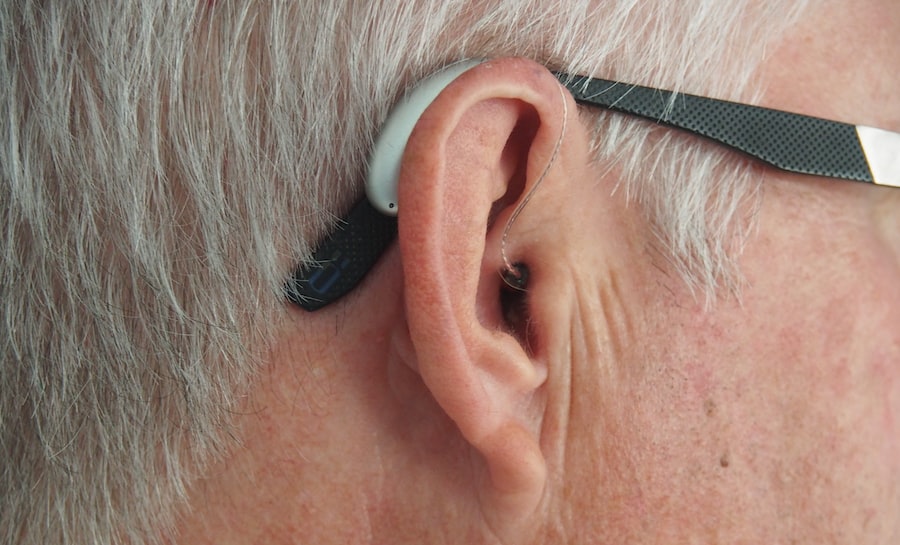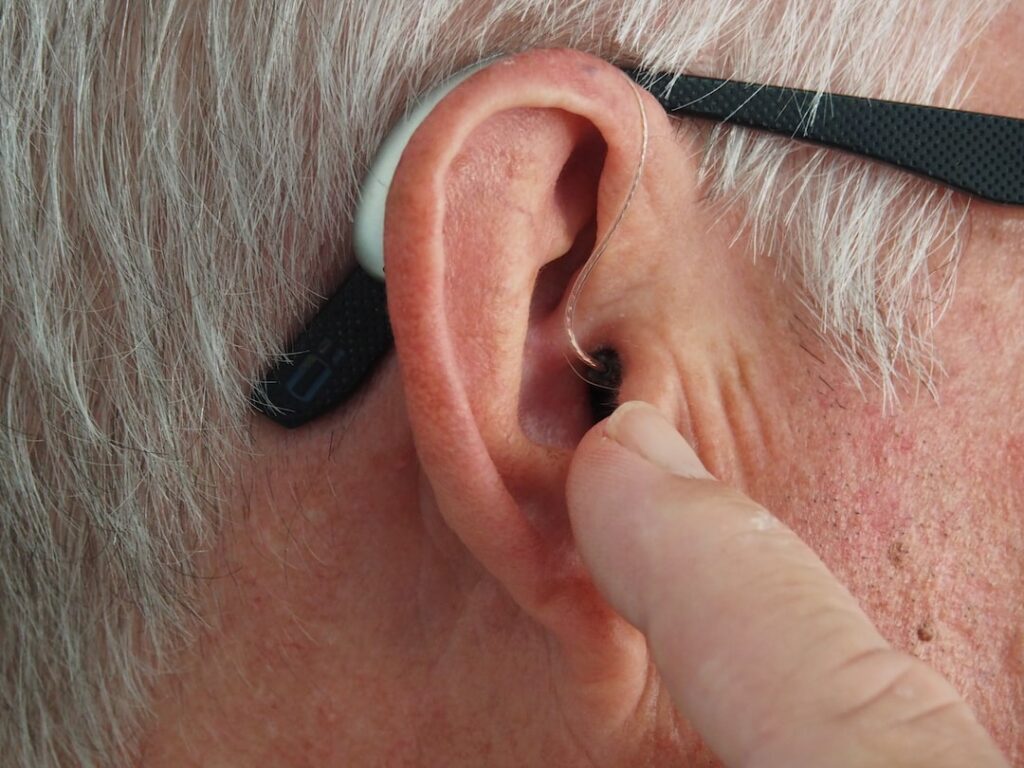Hearing loss is a prevalent issue that affects millions of people worldwide. It can have a significant impact on an individual’s quality of life, affecting their ability to communicate and engage with the world around them. In Kota Kinabalu, the capital city of Sabah, Malaysia, hearing loss is a growing concern. The city has a high prevalence of hearing loss due to various factors such as noise exposure, genetics, and age-related hearing loss.
The importance of hearing loss prevention cannot be overstated. It is crucial to take proactive measures to protect our ears and preserve our hearing for the long term. By understanding the causes and types of hearing loss, seeking regular check-ups with an audiologist, exploring hearing solutions such as hearing aids and assistive devices, making lifestyle changes, and taking steps to prevent occupational hearing loss, we can significantly reduce the risk of developing hearing loss.
Understanding the Causes and Types of Hearing Loss
Hearing loss can be categorized into three main types: conductive, sensorineural, and mixed. Conductive hearing loss occurs when there is a problem with the outer or middle ear that prevents sound from reaching the inner ear. This type of hearing loss can be caused by factors such as ear infections, earwax buildup, or abnormalities in the ear structure.
Sensorineural hearing loss is the most common type and occurs when there is damage to the inner ear or the auditory nerve. This type of hearing loss is often caused by aging, exposure to loud noises, certain medications, or genetic factors. Mixed hearing loss is a combination of both conductive and sensorineural hearing loss.
Various factors can contribute to the development of hearing loss. Age-related hearing loss, also known as presbycusis, is a natural part of aging and typically affects individuals over the age of 65. Noise exposure is another significant cause of hearing loss, especially in urban areas like Kota Kinabalu, where there is a high level of noise pollution. Other factors such as genetics, certain medical conditions, and ototoxic medications can also contribute to hearing loss.
The Importance of Regular Hearing Check-Ups with an Audiologist Near Me
Regular hearing check-ups with an audiologist are essential for early detection and prevention of hearing loss. Audiologists are healthcare professionals who specialize in the diagnosis and treatment of hearing disorders. They play a crucial role in identifying any potential issues with your hearing and providing appropriate interventions.
During a hearing check-up, an audiologist will conduct various tests to assess your hearing abilities. These tests may include pure-tone audiometry, speech audiometry, and tympanometry. By regularly monitoring your hearing health, an audiologist can detect any changes or signs of hearing loss early on, allowing for timely intervention and management.
Regular hearing check-ups also provide an opportunity for education and counseling on hearing loss prevention. An audiologist can provide guidance on how to protect your ears from noise exposure, recommend appropriate hearing protection devices, and offer advice on lifestyle changes that can help preserve your hearing.
Hearing Solutions Near Me: Hearing Aids and Assistive Devices
For individuals with hearing loss, hearing aids and assistive devices can significantly improve their quality of life. Hearing aids are small electronic devices worn in or behind the ear that amplify sound and make it easier for individuals with hearing loss to hear and understand speech. There are different types of hearing aids available, including behind-the-ear (BTE), in-the-ear (ITE), and completely-in-the-canal (CIC) models.
Assistive devices are designed to enhance communication for individuals with hearing loss in specific situations. These devices can include amplified telephones, captioned telephones, personal listening systems, and alerting devices that notify individuals of important sounds such as doorbells or smoke alarms.
Using hearing aids and assistive devices can have numerous benefits for individuals with hearing loss. They can improve speech understanding, enhance communication in various environments, reduce listening effort, and improve overall quality of life. It is essential to consult with an audiologist to determine the most suitable hearing solution for your specific needs.
The Role of Lifestyle Changes in Hearing Loss Prevention
In addition to regular check-ups and the use of hearing aids and assistive devices, making lifestyle changes can also play a significant role in preventing hearing loss. One of the most important steps is to avoid exposure to loud noises. Prolonged or repeated exposure to loud noises can damage the delicate structures of the inner ear and lead to permanent hearing loss. It is crucial to limit exposure to loud music, machinery, power tools, and other sources of excessive noise.
Wearing ear protection in noisy environments is another effective way to prevent hearing loss. Earplugs or earmuffs can help reduce the intensity of sound and protect your ears from damage. It is especially important to use ear protection in occupations or recreational activities that involve high levels of noise, such as construction work, shooting ranges, or concerts.
Maintaining good overall health can also contribute to hearing loss prevention. Certain medical conditions such as diabetes and cardiovascular disease have been linked to an increased risk of hearing loss. By managing these conditions and adopting a healthy lifestyle that includes regular exercise, a balanced diet, and avoiding smoking, you can reduce the risk of developing hearing loss.
Occupational Hearing Loss: Prevention and Management

Occupational hearing loss is a significant concern for individuals working in noisy environments. Prolonged exposure to high levels of noise can cause irreversible damage to the ears and lead to permanent hearing loss. It is crucial for employers and employees alike to take proactive measures to prevent occupational hearing loss.
Employers should provide a safe working environment by implementing engineering controls such as sound barriers or enclosures, using quieter machinery or equipment, and establishing hearing conservation programs. These programs may include regular noise assessments, employee training on hearing protection, and the provision of appropriate hearing protection devices.
Employees should actively participate in hearing conservation programs and use hearing protection devices consistently. It is essential to wear earplugs or earmuffs in noisy work environments and ensure they fit properly to provide adequate protection. Regular hearing check-ups are also recommended for individuals working in occupations with a high risk of noise exposure.
Protecting Children’s Ears: Tips for Parents and Caregivers
Children’s ears are more susceptible to damage from loud noises compared to adults. Exposure to excessive noise during early childhood can have long-term effects on their hearing health. Parents and caregivers play a crucial role in protecting children’s ears and preventing hearing loss.
Limiting exposure to loud noises is the first step in protecting children’s ears. Avoid exposing them to loud music, fireworks, power tools, or other sources of excessive noise. If attending events with loud noises such as concerts or sporting events, use ear protection specifically designed for children, such as earmuffs or earplugs.
It is also important to teach children about the importance of protecting their ears and practicing good hearing health habits. Encourage them to use ear protection when necessary, such as when using headphones or participating in noisy activities. By instilling these habits early on, you can help them develop lifelong practices that will protect their hearing.
Noise Pollution and Its Effects on Hearing
Noise pollution is a growing concern in urban areas like Kota Kinabalu. It refers to the excessive or disturbing noise that can have harmful effects on human health and well-being, including hearing loss. Continuous exposure to high levels of noise can damage the delicate structures of the inner ear and lead to permanent hearing loss.
Reducing exposure to noise pollution is crucial for hearing loss prevention. There are several steps individuals can take to minimize their exposure to excessive noise. These include using noise-cancelling headphones or earplugs in noisy environments, keeping the volume of electronic devices at a reasonable level, and choosing quieter modes of transportation whenever possible.
Communities and policymakers also have a role to play in reducing noise pollution. Implementing noise control measures such as sound barriers, traffic regulations, and zoning restrictions can help minimize the impact of noise on residents’ hearing health. By working together, we can create a quieter and healthier environment for everyone.
Hearing Loss Prevention for Seniors: Tips and Strategies
Hearing loss is more common in seniors, with age-related hearing loss affecting a significant portion of the older population. As we age, the structures of the inner ear naturally deteriorate, leading to a gradual decline in hearing abilities. However, there are steps seniors can take to prevent or minimize the impact of hearing loss.
Regular hearing check-ups are essential for seniors to monitor their hearing health and detect any changes early on. An audiologist can provide guidance on hearing loss prevention strategies and recommend appropriate interventions if necessary.
Seniors should also be mindful of their exposure to loud noises and take steps to protect their ears. Avoiding prolonged exposure to loud music, using ear protection in noisy environments, and keeping the volume of electronic devices at a reasonable level are all important measures.
Maintaining overall health is also crucial for seniors’ hearing health. Certain medical conditions such as diabetes and cardiovascular disease have been linked to an increased risk of hearing loss. By managing these conditions and adopting a healthy lifestyle that includes regular exercise, a balanced diet, and avoiding smoking, seniors can reduce the risk of developing hearing loss.
Taking Steps to Protect Your Ears and Preserve Your Hearing
In conclusion, hearing loss prevention is crucial for maintaining good hearing health and overall well-being. By understanding the causes and types of hearing loss, seeking regular check-ups with an audiologist, exploring hearing solutions such as hearing aids and assistive devices, making lifestyle changes, and taking steps to prevent occupational hearing loss, we can significantly reduce the risk of developing hearing loss.
It is important for individuals to take proactive measures to protect their ears and preserve their hearing. By avoiding exposure to loud noises, wearing ear protection in noisy environments, maintaining overall health, and seeking professional help when needed, we can ensure that our hearing remains intact for years to come.
Remember, prevention is always better than cure. By taking steps today to protect your ears, you can enjoy a lifetime of good hearing and all the benefits that come with it. Don’t wait until it’s too late – start prioritizing your hearing health now.
If you’re interested in hearing loss prevention in Kota Kinabalu, you may want to check out HearCare Malaysia. They offer a range of services and resources to help protect your hearing. One article that caught my attention is “The Sound Solution: Unveiling the Top Audiologist in Malaysia.” This article highlights the expertise and experience of the top audiologists in the country, providing valuable insights into the field of audiology and hearing care. To learn more about this article, visit HearCare Malaysia.
FAQs
What is hearing loss prevention?
Hearing loss prevention refers to the measures taken to protect one’s hearing from damage or deterioration caused by exposure to loud noises or other factors.
What are the common causes of hearing loss?
The most common causes of hearing loss include exposure to loud noises, aging, genetics, infections, and certain medications.
How can I prevent hearing loss?
You can prevent hearing loss by avoiding exposure to loud noises, wearing earplugs or earmuffs in noisy environments, taking breaks from loud noises, and maintaining good ear hygiene.
What are the signs of hearing loss?
The signs of hearing loss include difficulty understanding speech, asking people to repeat themselves, turning up the volume on the TV or radio, and ringing or buzzing in the ears.
Can hearing loss be reversed?
In some cases, hearing loss can be reversed through medical treatment or surgery. However, in most cases, hearing loss is permanent and cannot be reversed.
What should I do if I suspect I have hearing loss?
If you suspect you have hearing loss, you should see an audiologist or other hearing healthcare professional for a hearing test. They can diagnose the type and severity of your hearing loss and recommend appropriate treatment options.

